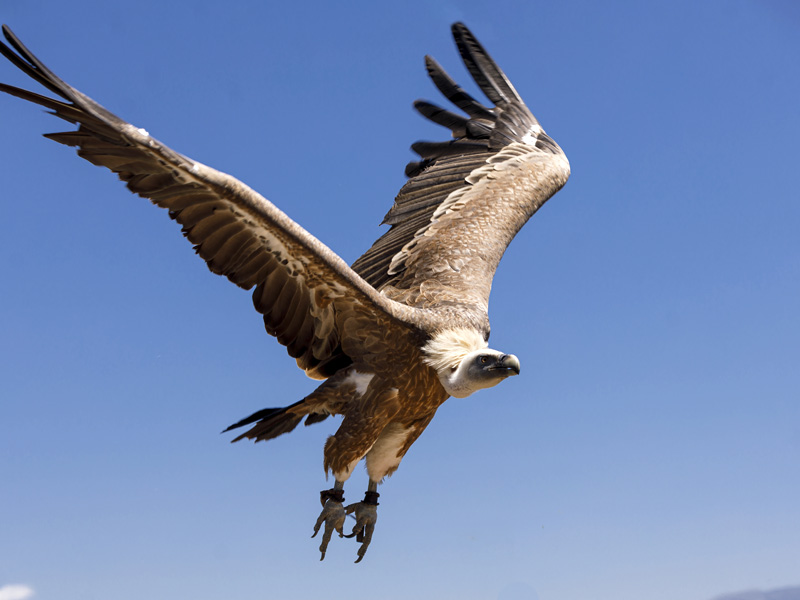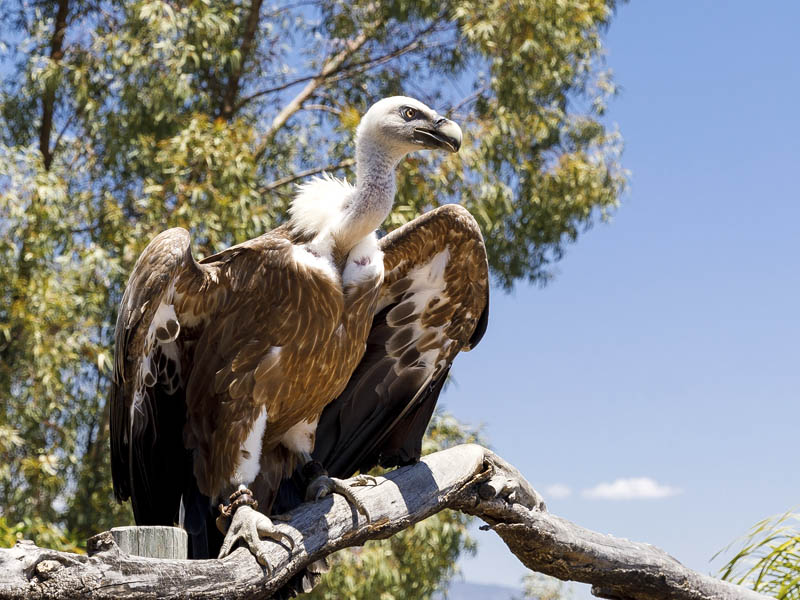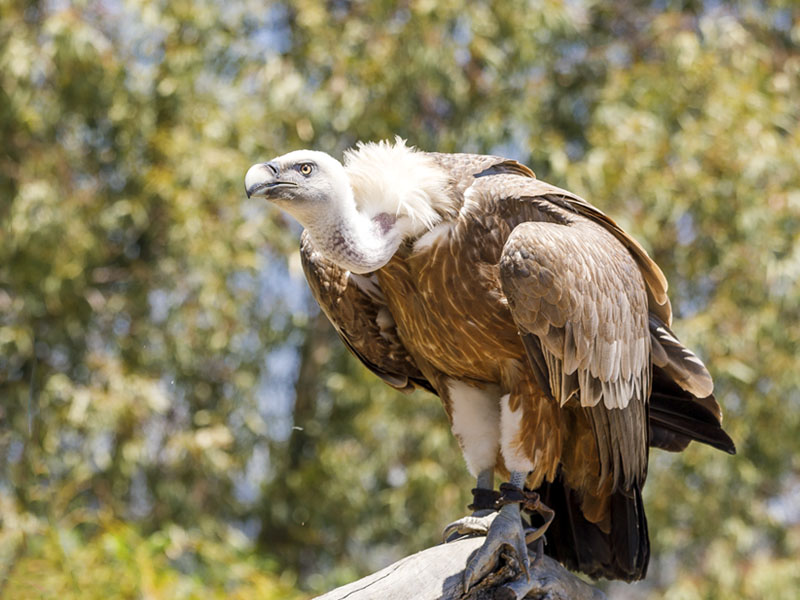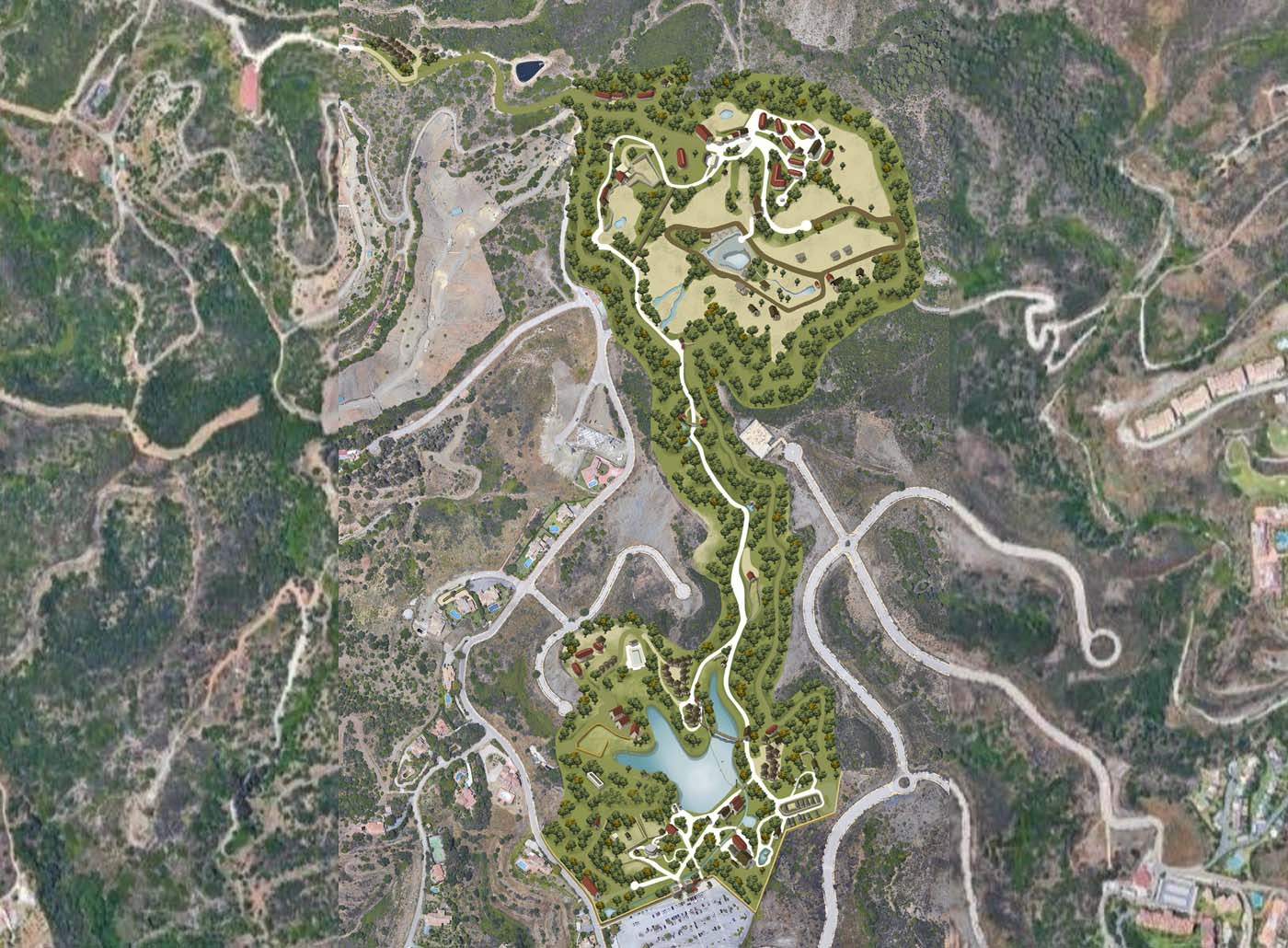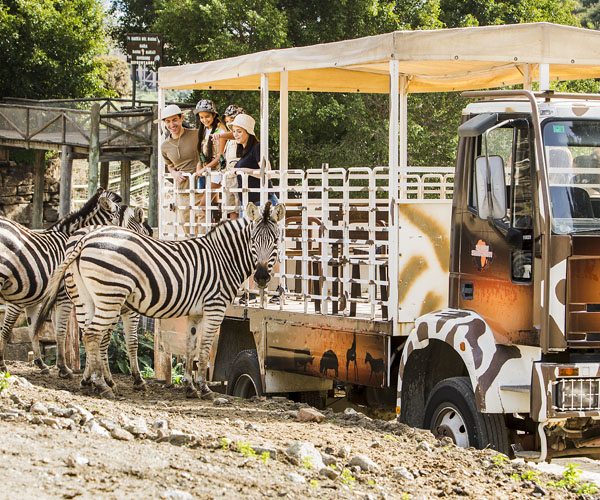This is a fairly widely distributed species, occupying southwestern and southeastern Europe, northwestern and southern Africa, the Balkans, Turkey, Arabia, Iran, Afghanistan, Pakistan and northern India.
Its plumed neck is covered with down at the base, adapted for penetrating carcasses.
This scavenger is one of the most voluminous birds in Europe and also one of the longest-lived. There is hardly any sexual dimorphism.
When breeding, the griffon vulture settles in rocky cliffs, either in mountain areas up to 2,000 meters high or in river canyons, the female lays a single egg that is incubated by both parents until birth, from 47 to 57 days after laying.
The griffon vulture has been closely linked to the pastoral activities of man, performing an effective, although sometimes misunderstood, health work. It has been persecuted for decades, becoming seriously endangered, and the main threat for the griffon vulture is poisoning from eating poisoned bait. The loss of habitat, coupled with the lack of food as a result of EU regulations (which require the removal of dead livestock).
The specimens that are in Selwo Aventura, were transferred by the Ministry of Environment of several Autonomous Communities because they are not suitable for reintroduction into the wild, as they have suffered irreparable damage to their wings due to collision with electrical wires and shots of poachers, and to raise awareness of the need to protect and collaborate in conservation programs.
Selwo Aventura collaborates with the Griffon Vulture Reintroduction Project in the Porto Natural Park (Sardinia) Conte and in 2018 with the transfer of Pramma, a female born in 2015, thus contributing to the conservation of necrophagous birds in territories where populations have been significantly depleted for various causes.
